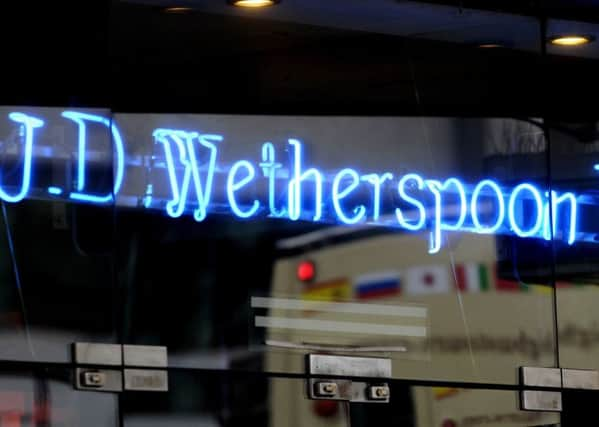Food and drink prices at Wetherspoon's going to go up


The revelation contradicts claims made earlier this week that prices at the Brexit-backing chain were about to fall.
Mr Martin, a prominent Leave supporter, also admitted that the UK would require a “considerable level” of immigration over the next several decades to keep the economy afloat.
Advertisement
Hide AdAdvertisement
Hide AdWith around 900 pubs to its name across the UK, Wetherspoon’s is popular among drinkers thanks in no small part to its inexpensive prices.
Wetherspoon’s price hike
Like-for-like sales, which exclude new pubs, rose five per cent in the year to 29 July seeing pre-tax profits jump by 4.3 per cent to £107.2m, according to figures released by the company.
However, taxes, labour and interest costs are expected to be higher than last year, meaning the price of food and drinks at Wetherspoon’s “may have to go up a bit”, Mr Martin has admitted in an interview with the BBC, a move that will likely disappoint customers.
Tim Martin: No deal is a good deal
The Leave campaigner also revealed he was in favour of a no deal Brexit, an outcome largely feared across UK industries.
Advertisement
Hide AdAdvertisement
Hide Ad“A deal is a bad thing – if we don’t have a deal and embrace free trade, prices will go down in the shops,” Mr Martin claimed.
“We will be in a much stronger position on a free trade basis that some people call a ‘no deal’,” he added.
UK economy needs immigrants
Concerns about immigration formed a large part of the Leave campaign’s agenda in the run up to the 2016 EU referendum, but Mr Martin signalled the UK would need to attract migrant workers in the decades to come to keep the economy afloat.
“Although I believe in Brexit, I think the UK’s got quite a low birth rate and that we need a gradually rising population, and that we will need a considerable level of immigration over the next 10, 20, 30 years to be a successful economy,” he said. “Having said that, I think that uncontrolled immigration EU-style is not a good thing.”
